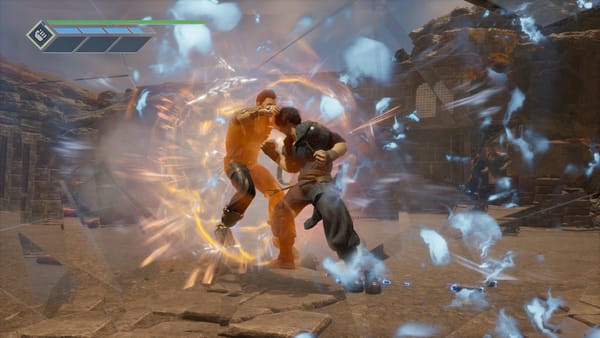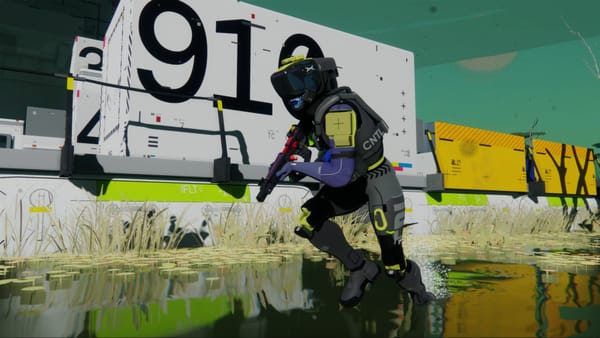#41: Rogue elements
Back in the mists of time — okay, the early 2000s — I put my nascent banking career on hold and briefly became a music journalist, working for a lifestyle and clubbing website as music editor. It was a wonderful time, until it wasn’t anymore, but 20 years later I naturally only remember the good bits. In my head, it was one 18-month-long party.
Dance-music journalism was weird. It essentially involved listening to music during the week, then going raving for free at the weekend, and in between you’d have to come up with novel ways of writing ‘this song has a really nice sort of whooshy bit in the breakdown’ and ‘a lot of people were on drugs and had a good night’. It was hard for a writer to stand out. And so, among the journos of the time, there was this constant rush to unearth something new — some fresh flavour of electronic music that had emerged in, like, the favelas of Rio de Janeiro, or the tucked-away basement clubs of Copenhagen or Berlin — and then to name it.
Once a writer had put a label on some new genre or subgenre, their name would be etched into dance-music history. The Wikipedia entry for ‘progressive house’ credits, in its ‘etymology’ section, the former Melody Maker writer Simon Reynolds with the term’s invention. Today, Wiki reckons there are 50 house-music subgenres, and my unkillable inner muso is quite certain that list is incomplete. Anyway, that is enough about music. I promise there is a point to all this.
In games, similarly, we speak and think at first of genres and then of subgenres, prepending our nouns with more narrowly descriptive adjectives over time. In the 1980s, we just had platform games; these days we have puzzle platformers, action platformers, cinematic and 3D and masocore platformers, and so on. As genres are popularised, and ideas are springboarded off and iterated upon, the spectrum they cover becomes too broad for a single label to cover. But that base genre still tells you what to expect. All those different forms of platform games will involve running and jumping onto and between platforms, right? FPS, RPG, survival horror, racer — same deal.
With all that in mind, dear reader, what the hell is this thing called ‘Roguelike’? I no longer know what this word means, if I ever did — only that it is bloody everywhere. On Steam alone, searching for ‘Roguelike’ and filtering by ‘upcoming’ gives me 495 results. Among them are FPSes and RPGs, deck-builders and strategy games and bullet-hell shooters. I like Roguelikes, I think. It appears to be one of my favourite genres. I love Hades and Slay The Spire and… does Dark Souls count? It seems like the sole uniting theme here is you die a lot, and lose a lot of progress on death, and since we appear to be able to call anything a Roguelike these days, I assume Dark Souls is one.
Despite this, there is in fact a surprisingly specific definition for this kind of thing. In 2008, at the International Roguelike Development Conference (!) in Berlin, players and developers came together to establish a set of grounding principles — split into high- and low-value factors — for what constitutes a Roguelike. This so-called Berlin Interpretation should, you’d think, put a limit on how far the term could be taken. But I don’t think many of the games I just found on Steam would fit within it.
Sure, we have our subgenres: there are deck-building Roguelikes, and strategy Roguelikes, survival-horror ones and so on. We have Roguelites, too, which I think are supposed to be slightly more approachable games with persistent, or persistent-ish, progression, and more jokes. But when the genre itself is so vague, and so widely applied, the subgenres aren’t particularly helpful. If anything, they muddy the waters even further. Genres exist to guide us: to give us an indication of what kind of game we’re about to buy or play. The term Roguelike, I am afraid, does not.
For instance, I powerfully disliked Returnal at first, because it was sold to me as a Roguelike and I spent 20 hours looking for a game that wasn’t actually there. I wasn’t hunting for aliens, but for synergies, for builds — for a complex web of systems to explore over hundreds of hours. For Slay The Spire or Hades in the clothing of a spectacular action shooter. What I got was a game that randomly generates its levels from premade tilesets, has some mostly cruel RNG loot elements, and boots you back to the start when you die.
Once I’d realised that, and made my peace with it, I enjoyed Returnal immensely. But it’s no Roguelike, at least not in the Nathan Interpretation of the term. My worry is that, as probably the highest-profile game ever to launch under the label, it ends up putting people off the genre entirely, meaning they’ll miss out on Hades and Spire and all the rest. Equally, those that bounced off Hades and Spire — and I am sure such people exist, though I know we can never be friends — will pass over Returnal, assuming it is cut from the same cloth.
What a mess, then, but it’s a weirdly positive one in a way. The reason that the meaning of ‘Roguelike’ is so hard to parse is that it is, despite the specificity of the Berlin Interpretation, so incredibly flexible. It is a framework that can be, and has been, borrowed, reinterpreted and iterated upon by so many other developers, working in so many different genres, that it has now lost whatever meaning it ever had — to the point where the subgenre is a more important descriptor than the genre itself. That’s pretty cool. It’s also a bit like house music, now I think of it, but I’ll spare you my thoughts on that for another day.
MORE!
- The tide appears to be turning against Roblox, something I am increasingly relieved I have never introduced the eldest to. This excellent People Make Games investigation shines a light on the exploitative tactics it uses on its young audience; meanwhile, the company itself is battling a rising tide of user-built games that recreate mass shootings.
- The creator of Vine’s new thing is a fantasy game console built on the blockchain where games are NFTs. Despite sounding like it was invented by throwing darts at a board with buzzwords pinned up on it, this isn’t the worst idea I’ve ever heard. It is merely terrible.
- As my sleep-starved self is all too aware, the brilliant, beguiling Hades launched last week on PS5 and Xbox Series, and is now the highest-rated game on both platforms, according to Metacritic. Quite right too.
- Iain Garner, the co-founder of publisher Neon Doctrine who spoke out against PlayStation’s miserable treatment of indies, sees the first green shoots of progress for smaller devs on the platform. Good.
- Updates from the all-digital not-QuakeCon: a remastered and updated version of the original Quake is out now; a classic Doom collection has landed on Switch; and they’re effing releasing effing Skyrim again, somehow.
- Nintendo just launched a demo for WarioWare: Get It Together on the eShop. I will now put this edition to bed so I can go and play it.
That’s your lot for today. Why not pretend it’s a Roguelike, and read it again? Then share it and so forth using the buttons below. Have a lovely weekend, and I’ll see you on the flip.





